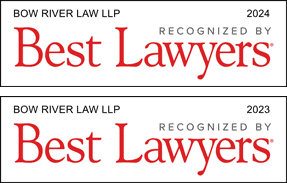- Home
- Services
- Constructive Dismissal
- COVID-19
- Discrimination / Human Rights
- Employee Sued by Employer
- Employment Contracts: Drafting / Review / Negotiation
- Employment Policy Drafting / Review
- Fiduciary Obligations
- Harassment / Bullying
- Independent Contractors
- Just Cause For Termination
- Lay-Offs
- Non-Competition / Non-Solicitation
- Professional Regulation
- Severance Review / Negotiation
- Union / Labour Law
- Workplace Investigations
- Wrongful Dismissal / Unjust Dismissal
- About
- Our Team
- Blog
- Call Now: 587-391-7601
- Contact Us
$5k In Costs Awarded in Human Rights for Poor Litigation Conduct

Fisher (Marshall) v Devolbren Property Services Inc., 2022 AHRC 79 (Scott) is a new Alberta Human Rights decision where a costs penalty of $5,000 was awarded against the employer for its poor conduct in the litigation process.
For the sake of the non-lawyer readers, please note that “costs” is just a special payment, typically ordered to come from the loser in an action to the winner, which is intended to compensate the winner for part of their legal fees and effort. It is within the discretion of the judge or tribunal. If costs are awarded at all, they are generally considered and awarded as a separate matter, after the outcome of the action is already determined.
This case is interesting because it is relatively rare for the Alberta Human Rights Tribunal to order one side to pay the other side any costs penalty following conclusion of a human rights matter.
Facts
Below are the pertinent facts found by Karen Scott of the Alberta Human Rights Tribunal:
- The complainant had won the discrimination claim against the employer, and was awarded $30,000 in general damages against her employer
- The complainant was now bringing an application seeking an order that would require the employer to pay a “costs” penalty to her as well
- The basis of the application was that the employer acted poorly in the course of the litigation
- The employer – Devolbren Property Services Inc. – had purported to terminate the employment of the complainant for just cause, in part on the basis of some intimate photographs the complainant allegedly uploaded to the employer’s server
- In pre-hearing disclosure of documentation, the employer had produced the emails to which these photos were attached, and included the attachments
- The tribunal ordered prior to the hearing that those records should be removed from the pre-hearing disclosure
- The employer did so, but then provided them (emails plus attached photos) as disclosure for the hearing itself
- The employer entered the emails into evidence, but did not enter the attached photos into evidence
- The emails and attached photos were not put on the server by the complainant, but by her partner at the time
- The hearing was done over videoconference however, and the use of the “sharescreen” function made it so that everyone participating in the hearing saw the photos several times
Analysis / Conclusion
The Alberta Human Rights Tribunal started out by noting that it had consistently limited the occasions when it made costs awards to situations where a party has engaged in improper conduct during the hearing process, including being dishonest, or being prejudicial to the other party or to the integrity of the process.
The AHRT went on to find that the photographs themselves were not relevant to the issue of just cause, and that the employer had included them throughout the process in an effort to embarrass the complainant, as follows:
[27] […] At the risk of repeating myself, the Photographs were not even arguably relevant, let alone material. The respondent has provided no information to support a finding that it had a good faith belief that the Photographs were relevant and material to the issues raised in the Complaint. The lack of credible, good faith explanation begs the question as to the motive of the respondent in including these very personal and intimate Photographs.
[28] Moreover, even while agreeing not to enter them as exhibits, the respondent repeatedly referred to the Photographs as “pornographic” and “explicit”, giving the impression that they were “obscene” as opposed to “intimate”. The respondent’s derogatory and salacious description of the Photographs further suggests that the inclusion of the Photographs was intended in some way to embarrass the complainant and denigrate her character. It undermines the suggestion that the Photographs were included in the hearing submissions in good faith.
The AHRT went on to find that, although the employer had not attempted to introduce the photographs as exhibits at the hearing itself, “most, if not all” of the harm had already been done by that time. The tribunal described the employer’s actions as egregious, and ordered the employer to pay a costs penalty to the complainant of $5,000.
My Take
This outcome seems really straightforward and obvious, but the outcome of slightly different facts would be much more difficult to predict.
It did not seem in dispute that the relevant pictures were “intimate” and should not have been on the employer’s server. If the complainant employee had been more to blame for the presence of the pictures on the server, the pictures would likely have been much more relevant and material to the question of whether the employer had just cause to dismiss her employment. In that case, examining their level of inappropriateness / offensiveness may not have attracted a “costs penalty”, even if the employer were unsuccessful. It is the fact that the display of the pictures themselves was totally unnecessary that put the tribunal in the mood to punish the employer.
Bow River Law provides these regular legal blog articles for the purposes of legal education and research for the public and the legal profession. These articles should be considered general information and not legal advice. If you have a legal problem, you should speak to a lawyer directly.
Bow River Law is a team of knowledgeable, skilled and experienced lawyers handling employment law, human rights (discrimination) and labour law matters. Bow River Law is based in Calgary but we are Alberta’s Workforce Lawyers.


